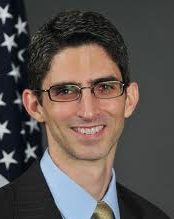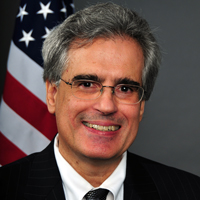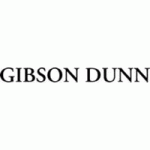
February 2013


Why the Out-Of-Delaware Trend in Merger Litigation May Not Be So Bad
The recent discovery that corporate law litigation very often takes place in courts outside of Delaware has rattled the academic consensus that Delaware won the corporate law “race” by providing a well-managed forum staffed with expert judges willing to decide …
Skadden on Swap Regulation: The CFTC and SEC Chart the Road Ahead
The Dodd-Frank Act authorized the CFTC and the SEC to develop comprehensive regulations for swap transactions and security-based swaps, respectively. Considering swaps generally were unregulated before Dodd-Frank, the CFTC and the SEC have been writing for two years on a …
Wachtell Lipton Discusses Recent Decisions Stressing Potential Disclosure-Based Litigation Claims
With the 2013 proxy season now well underway, two recent decisions emphasize the potential litigation risks public companies face under federal and state disclosure law. These decisions highlight the need for companies to focus on disclosure requirements as they prepare …

Market Structure Reform: A Suggested Agenda for Mary Jo White
A series of rule changes begun under former SEC Chairman Arthur Levitt are largely responsible for turning deep, centralized, and diverse pools of liquidity for trading stocks into our current fragmented market structure.
Today’s market now includes thirteen stock exchanges …

The Risk of Information Overload
Commissioner Paredes gave the following remarks at the SEC Speaks in 2013 in Washington D.C. on February 22, 2013. The views expressed are his own and do not necessarily reflect those of the Securities and Exchange Commission or his fellow …

Mutual Fund Sales Notice Fees: Are a Handful of States Unconstitutionally Exacting $200 Million Each Year?
My recent article, Mutual Fund Sales Notice Fees: Are a Handful of States Unconstitutionally Exacting $200 Million Each Year? appearing in the current issue of the Hastings Constitutional Law Quarterly, examines the constitutional validity of the notice filing fees paid …

Shareholders Need Robust Disclosure to Exercise Their Voting Rights as Investors and Owners
In the next few months, thousands of public companies will hold their annual shareholder meetings. I would like to take this opportunity to emphasize the importance of robust proxy disclosure to shareholders and to highlight areas in which the disclosure …

Regulatory Competition and Anticorruption Law
My paper, Regulatory Competition and Anticorruption Law, which was recently published in the Virginia Journal of International Law, responds to arguments that the recent increase in European enforcement of anti-bribery laws has created a risk of overenforcement. Critics of …

No-Shops & Fiduciary Outs: A Survey of 2012 Public Merger Agreements
One of the fundamental tenets of corporate law is that boards of directors owe fiduciary duties to the corporation and its stockholders. In the context of a sale of the corporation, these duties may require a board of directors to …

Call for Working Papers in Finance, Economics, Accounting, Law, and Business
On June 7, 2013, CalPERS is hosting its inaugural Sustainability & Finance Symposium in Davis, California. The event is co-chaired by Professor Robert J. Jackson, Jr. of Columbia Law School on behalf of the Ira M. Millstein Center for Global …

Why Buckley v. Valeo May Solve the CFPB’s Most Pressing Dilemma
On January 25, the D.C. Circuit issued a controversial decision in the Noel Canning case.[1] The Court invalidated three of President Obama’s recess appointments to the National Labor Relations Board after finding that the President overreached in making the …

The Value of Lawyer-Directors in Public Corporations
The accepted wisdom is that a lawyer who represents herself—by acting as both a lawyer and a director—has a fool for a client. In our working paper, Lawyers and Fools: Lawyer-Directors in Public Corporations, my co-authors, Lubomir Litov and …
Columbia Law Professors Weigh in on Noel Canning
The D.C. Circuit’s recent decision, Noel Canning v. NLRB, available here, has generated a barrage of commentary by law firms and others. Much of the interest in the business community has focused on the impact that the decision …

Facebook IPO derivative ruling: a cure for multiforum madness?
Every company considering an IPO owes a hearty thanks to U.S. District Judge Robert Sweet of Manhattan for his decision Wednesday to dismiss four shareholder derivative suits against Facebook board members. Sweet’s painstaking 70-page opinion includes holdings that are great …
Wachtell Lipton Discusses Rulemaking Petition for Modernization of Section 13 Beneficial Ownership Reporting Rules
NYSE Euronext, the Society of Corporate Secretaries and Governance Professionals and the National Investor Relations Institute have jointly filed a rulemaking petition with the SEC, seeking prompt updating to the reporting rules under Section 13(f) of the Securities Exchange Act …

Seinfeld and Director Compensation: A Decision That Wasn’t About Nothing
As companies prepare for the upcoming proxy season, the recent Delaware decision in the Seinfeld case offers a cautionary note for boards as they consider director equity and incentive awards and the terms of the plans under which they are …

Market Discipline: The Next Generation
My forthcoming article, Interbank Discipline, draws attention to the important role that banks play monitoring and disciplining other banks. To understand the significance of interbank discipline, the Article proposes a new way of thinking about market discipline more generally. …

Charitable Insolvency and Corporate Governance in Bankruptcy Reorganization
Poor corporate governance is a pervasive problem in the charitable nonprofit sector. Prominent examples of mismanagement and abuse include instances of intentional misconduct, such as embezzlement and unauthorized self-dealing, and negligent conduct, such as failure to diversify the organization’s investment …

The ICE Acquisition of NYSE Is a Failure for Europe
In 2011, the Deutsche Boerse Group launched an offer on the New York Stock Exchange. Everybody expected that the U.S. authorities would object to this foreign acquisition of the most iconic Stock Exchange in the United States, and arguably in …
 Sky Blog
Sky Blog